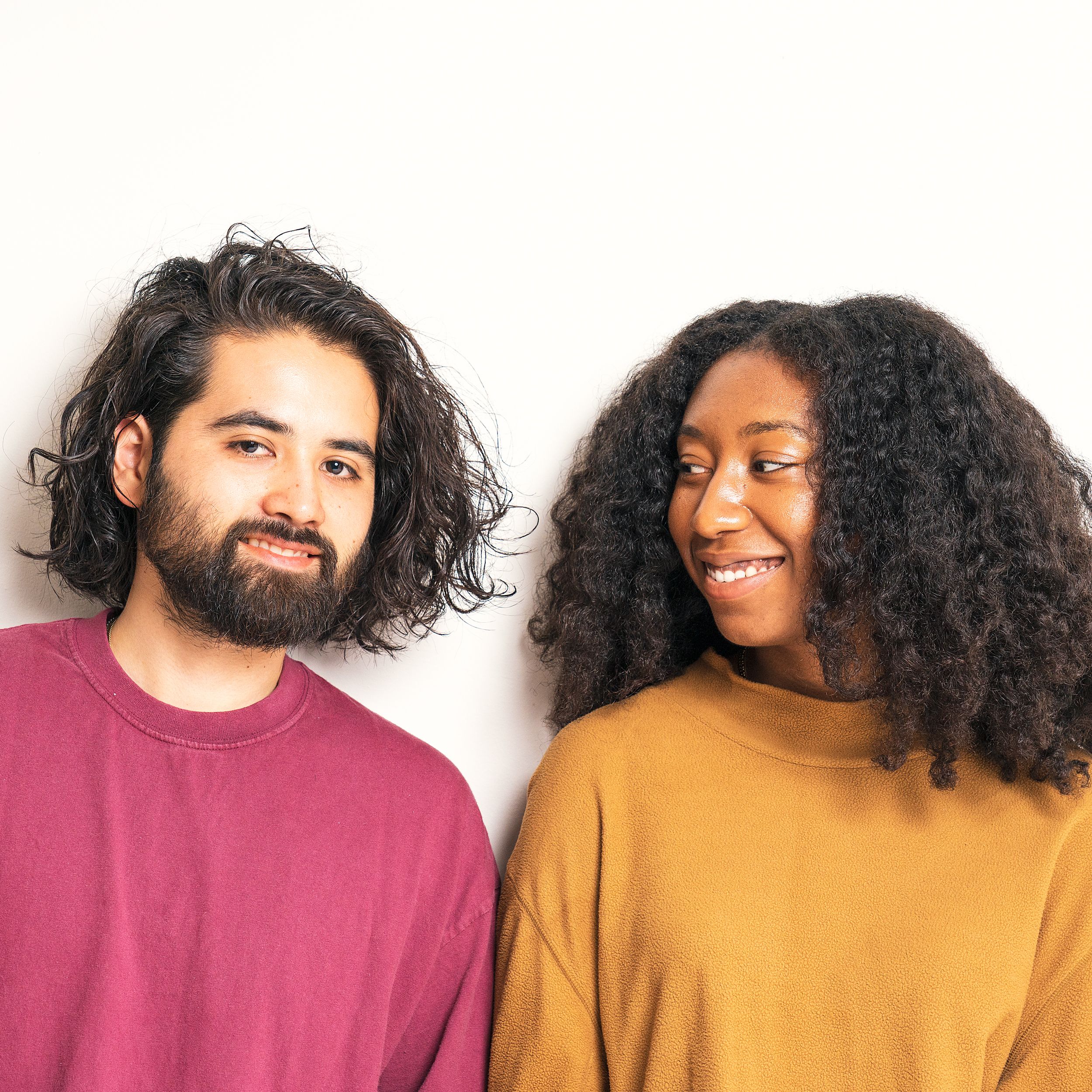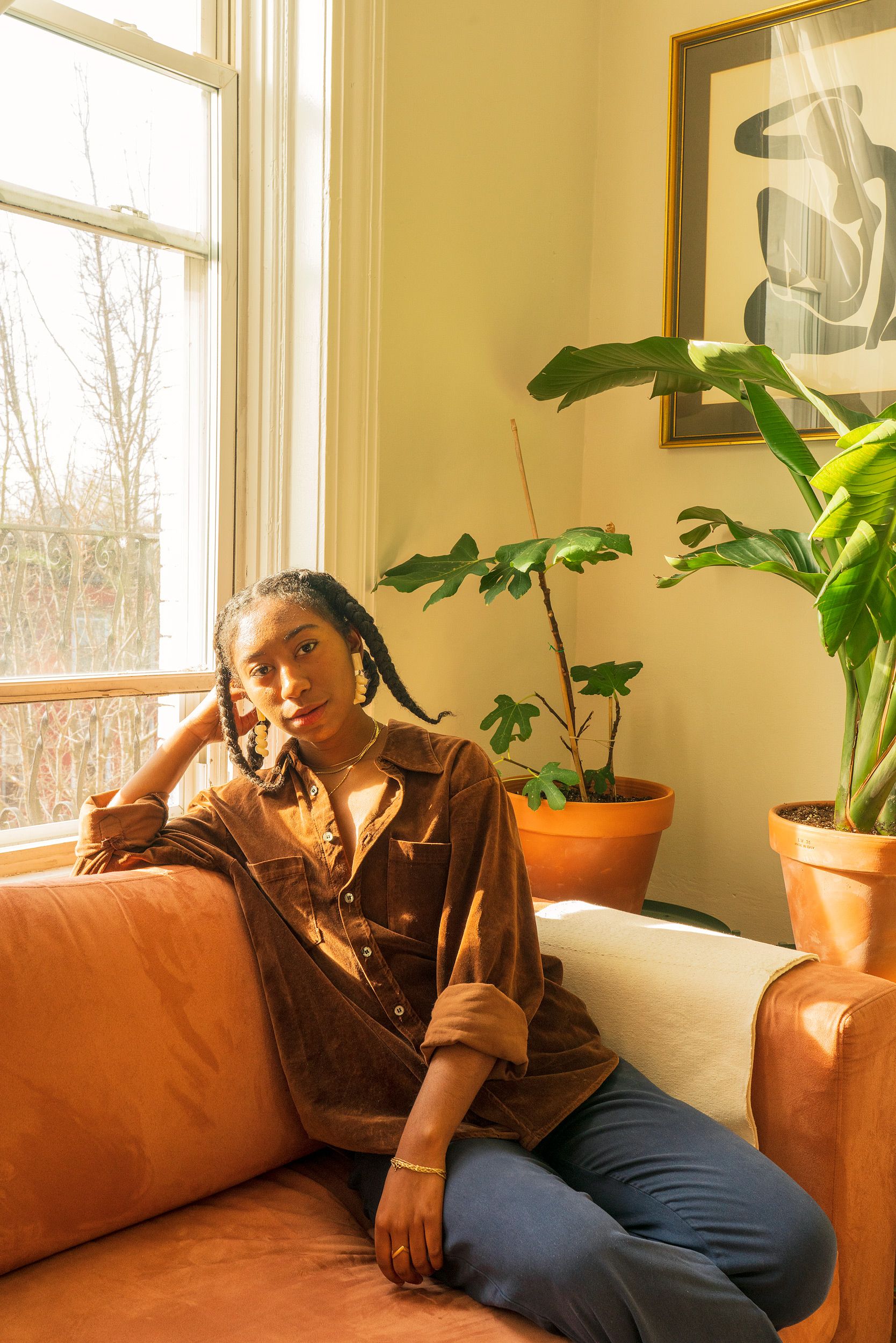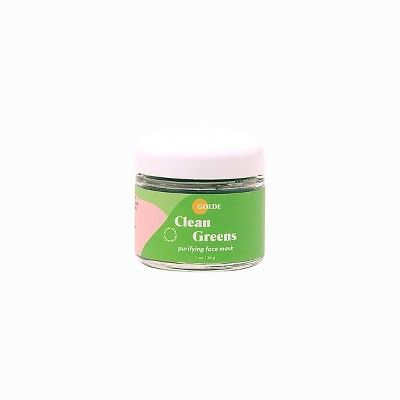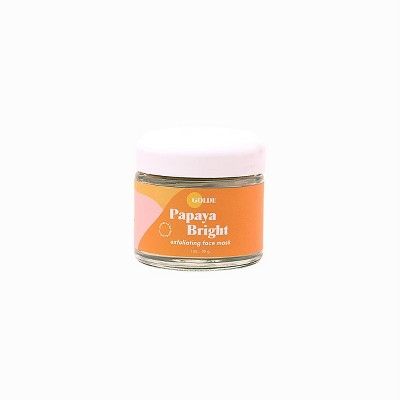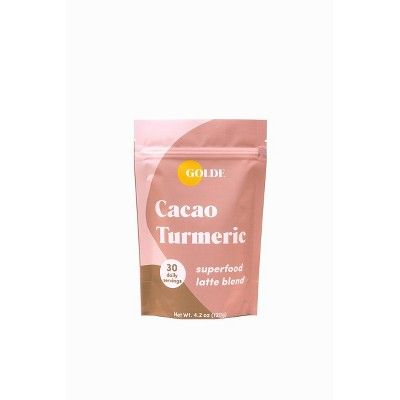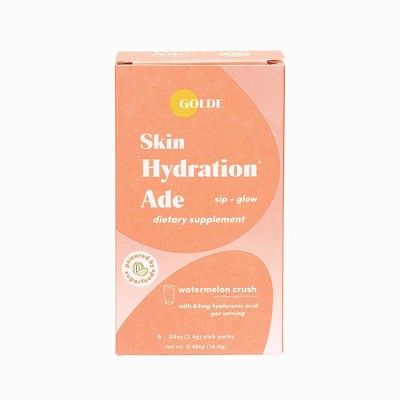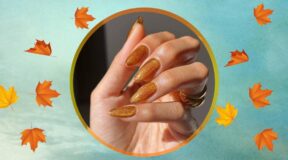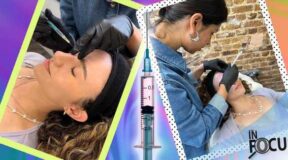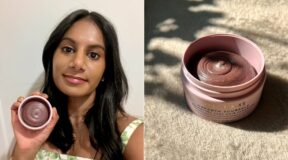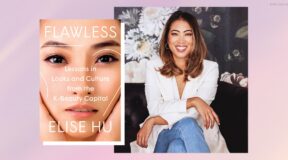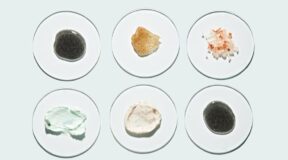If the last year of living in quarantine has taught us anything, it’s that self-care is nonnegotiable. And if there is anything that experiencing a racial reckoning has shown us, it’s that actively supporting minority-owned businesses is more crucial than ever before.
For Trinity Mouzon Wofford, the 27-year-old founder of wellness company Golde and the youngest Black woman to ever have her products stocked in Sephora stores, the dual events of the last year thrusted her brand into the spotlight in a way she never imagined. When first conceptualizing her line of cult-favorite superfood lattes and plant-based skincare masks, she wasn’t aiming to completely disrupt the wellness industry; she simply wanted to provide better access to natural goods for women of color across the board, who have long been shut out of the whitewashed wellness world. Her line, conceptualized by her and her partner, Issey Kobori, includes infectiously Instagrammable—and equally impressive—products like turmeric lattes and papaya exfoliating masks that influencers, wellness experts, and beauty junkies alike all fawn over.
Below, we speak with Mouzon Wofford about how 2020 changed the game for her small business, why she ventured into the wellness industry to begin with, and how she hopes to uplift marginalized communities in an industry that’s long overlooked them.
What was your personal introduction to the wellness space?
I grew up in a family that was always pretty wellness oriented. I grew up in upstate New York, and my grandmother was a frequenter of the local health food store and had me on almond butter and stuff like that back when that was still kind of weird and crunchy. I think it was always kind of just a cultural thing for me, if anything, but I didn’t really understand the power of it until I was a teenager. That was when my mom who has a severe autoimmune disease switched over to seeing this more holistically minded doctor and saw an incredible improvement in her symptoms. And that was really an eye-opener for me of the power of this stuff and how much it can really impact someone’s life.
So that was kind of the moment for me of saying, “Okay, this is my career path. This is what I want to do.” And so, I saw that through the lens of medicine—I was pre-med in college—I went down to NYU for school with full attention of going to medical school, becoming a doctor, and then practicing holistically minded care.
And then, as I was wrapping up my college career, I found out from my mom that she actually had to stop seeing that doctor because she just couldn’t afford it anymore, which really forced me to pause and just think on what I wanted to do in wellness and how accessibility played into that. So that was really, I think, the pieces that came together to get me really excited about wellness and self-care, and also layering in this piece of inclusivity and accessibility.
It’s no secret that Black women and women of color have been long overlooked in this industry. When you were first producing the concept that became Golde, aside from just representation, what was missing in the industry at the time when it came to reaching the woman-of-color consumer?
I was very much looking at my own experiences as a young woman of color in wellness. And I was personally feeling very caught between the crunchy granola stuff that I had grown up with and then this next wave of offerings that was trending as of late, that was so prestige and sort of ultra luxe. But it didn’t entirely resonate with me, and, frankly, I just couldn’t afford it. And when you looked at that world of wellness that was trending, it was overwhelmingly designed for wealthy folks, and it was designed for white folks.
I knew that I didn’t see myself represented in that. And it was frustrating, because I knew that wellness and self-care were concepts that everyone was interested in and hoping to learn more about. And I was hearing again and again from other young people of color that they didn’t think that wellness was for them, because the industry as it stood didn’t speak to them. I wanted to create a brand that was not just, “Okay, wellness for Black women,” but, like, wellness for everyone. And really kind of taking down those barriers that have been in the category for so, so long.
A whole other fascinating layer to the wellness conversation, which is that so many of these superfoods or rituals are coming from really ancient practices of people of color and Indigenous folks. I find that as a person of color, I think I have a little bit more of an ability to empathize and understand the importance of telling those cultural stories. Whereas I think that oftentimes in the more sort of mainstream wellness movement, they were just being buried, because no one knew that it was important to give credit where credit was due.
Golde first started off as a very, very small business being run by just you and your partner. What have been some of the biggest lessons you’ve learned while growing your brand?
There’ve been so many lessons. Entrepreneurship is really just a series of failures and learnings just over and over and over again. But when my partner, Issey, and I started the business, we were both 23 years old. We had never run a business before. We were still at our full-time jobs at the time. Issey luckily had a background in business just through his family. His parents had started a candle-pouring operation out of their garage, like, 25-plus years ago and scaled that into a profitable family business. And so, he had that intangible [opportunity] of a lifetime spent watching the ebb and flow of what it meant to really build a brand.
So I think he brought a lot of wisdom to the table that I certainly did not have, but really we kind of just got out there and started doing stuff. A lot of times, I get asked about why we didn’t take investor money from day one, and the answer is we didn’t even know that was something we could do or that we should do. We figured out how to design the packaging ourselves. We figured out how to take the product photography ourselves. We were mixing up the first batches by hand out of our turmeric latte lags. We just kind of went for it and took no money out of the business, and just were hoping to get it to the point that it could pay our rent.
There were just learning lessons alongside everything. It was how do you work with these different suppliers and make sure that you’ve got good quality control, which is an ongoing journey as you scale and you start to work with third-party manufacturing partners, and making sure it’s being done correctly. I also think about the lessons that I’ve learned building and growing a team, and making sure that we’re really nurturing those folks and building their careers.
Thinking about also this piece of building a community and considering the business as more than just a series of products, but really this living, breathing entity that thousands of people are joining in on and making sure that we are upholding those values for everyone that’s involved. So literally countless learnings. I learn something at least every single week, if not every single day.
Running a business is obviously very tiring. It takes a lot out of you. But you market the concept of self-care to people, so I want to know what do you do to prioritize self-care for yourself?
It’s been an ongoing journey for me, because as the business has grown, there have definitely been moments where self-care has felt distant from my daily routine. You definitely have those moments where the moment you wake up to the moment you go to bed is just work, work, work. I think that there’ve been a few practices that I’ve really worked into my routine at this point that have helped. Number one, I try to always make time for myself in the morning. I’m a morning person. And so, it’s kind of a shame if I end up spending, like, the entire morning just focused on work, because it’s kind of when I’m at my sharpest and my best. So it’s a good time to get work done, but it’s also a good time to just have space for literally anything else.
And so, the morning is often when I will take a walk around the block. I’ll just read for 25 minutes, and not a business book. Just something like fiction or something about plants, whatever. And I would say the other thing that I think the most strict on with myself is I really don’t look at my phone after dinner. So once the workday is over, which is typically like around six o’clock, I am making dinner with my partner. And from there, maybe just checking my phone to make sure nothing’s urgent.
Once we’ve eaten, it’s over. If you texted me at 9 p.m., I won’t see it. I’ll text you in the morning. So I think that’s been very helpful for me of just kind of limiting screen time and limiting my access to my inbox so that I’m not constantly getting pinged with little things that aren’t that urgent, and we can just wait until the morning anyways.
How do you want to see Golde grow in the next few years? And how do you want to see the wellness industry in general evolve as the years go by?
I’m so excited about the next couple of years, because we just celebrated our fourth birthday. And what a lot of folks don’t understand about businesses is that it really takes around five years to get any sort of meaningful traction. I mean, I think the venture capital industry coming into consumer goods has flipped that on its head to some extent, but the traditional understanding is that it takes five years to have something that’s somewhat self-sufficient.
Going into the next two to three years, it’s really all about how we take what we have built and really expand upon it, both from a product roadmap perspective, but also just thinking more broadly about how we continue to tell this story of self-care for all to our community and really create more and more opportunities for them to connect with one another.
This is, to me, where it gets really exciting. And I think it’s a funny thing to consider, because oftentimes, when I talk to entrepreneurs who are at the very, very beginning of their journey, they’re impatient and they want to know like, “Okay, well, where am I going to be one year from now?” And my answer is like, “Frankly, nowhere. It takes so long.” So I think it’s exciting now to finally be coming up on that year-five mark and starting to feel that we are getting that traction, and we can really start to build.
I think that wellness is going to follow in the steps of the broader beauty industry, which has become so much more inclusive in the past couple of years.
I feel very optimistic about the trajectory of wellness. I think so much has been blown open in the past couple of years to your point, just with thinking about inclusivity, accessibility. And I think that wellness is going to follow in the steps of the broader beauty industry, which has become so much more inclusive in the past couple of years. I mean, it’s ridiculous—I remember growing up and never being able to find my foundation shade when I would go to CVS or whatever and being confused. Because I actually thought to myself like, “Man, there’s only two colors for Black girls, but white girls have, like, 25. This seems difficult. How do they even choose the color? They all look the same.” So I was truly—before I even understood that it was a racist thing—I was just confused.
So you go from that and reading through, like, a magazine and the hair types that they offer tutorials for, just, like, curly and the relaxed. I can’t believe how much it has shifted in such a relatively short period of time. And so, I think wellness is going to follow on that path, and there’s always going to be more work to do. But I’m very hopeful about where it’s headed in the next few years.
SHOP GOLDE
Source: Read Full Article
